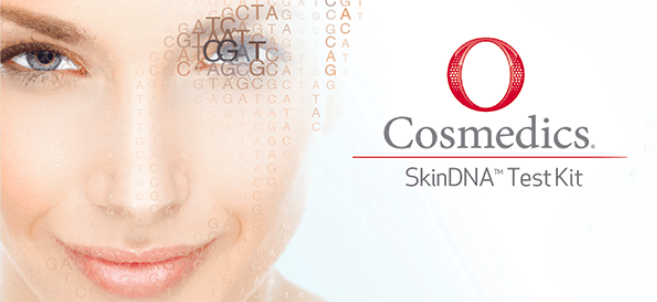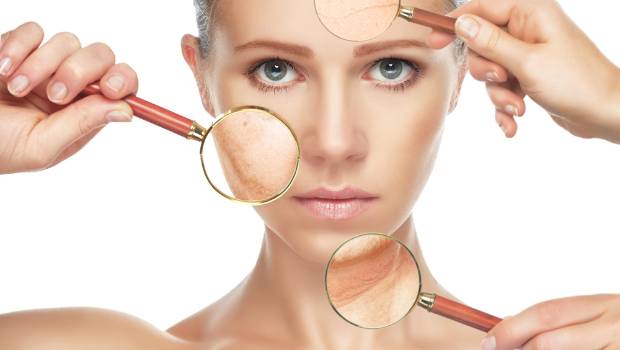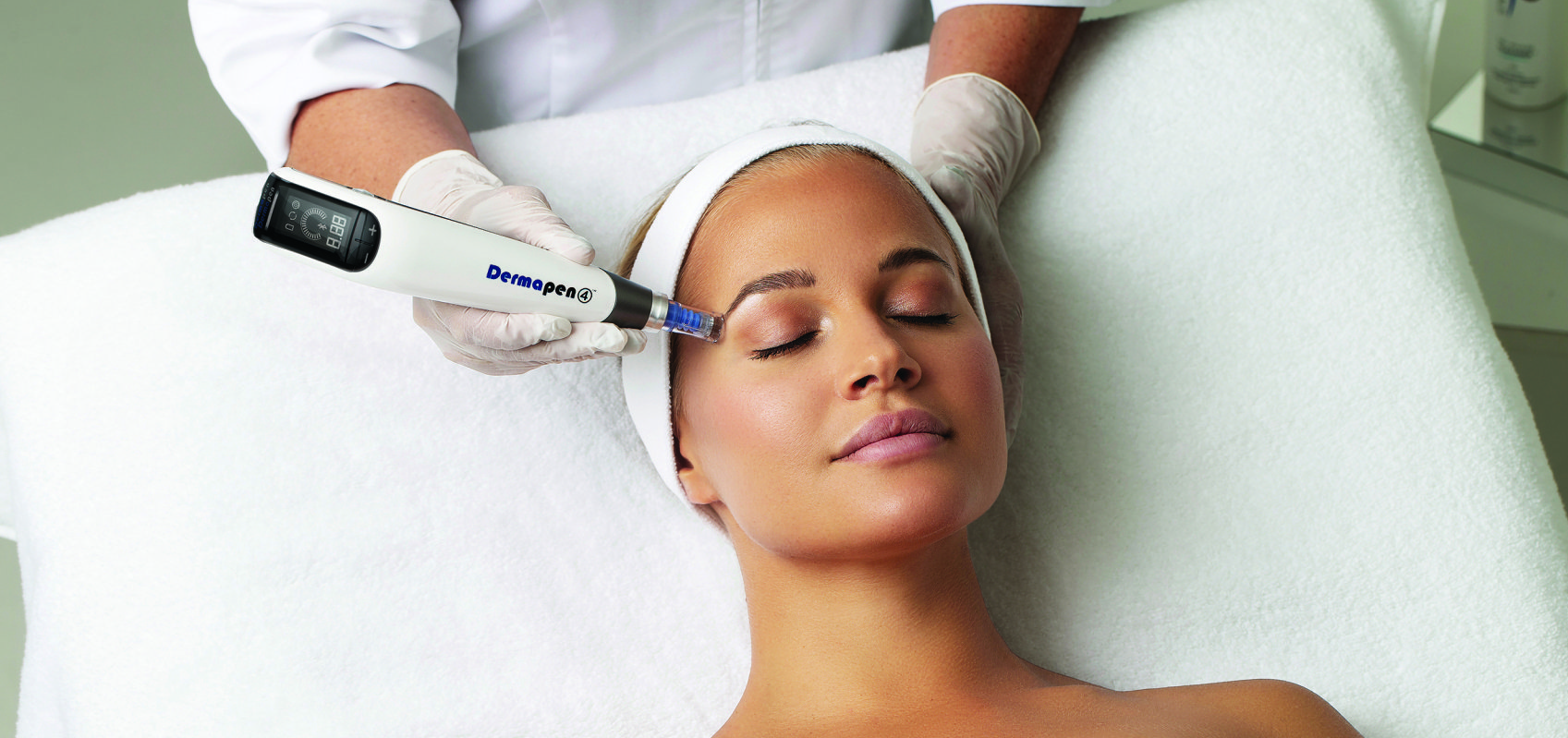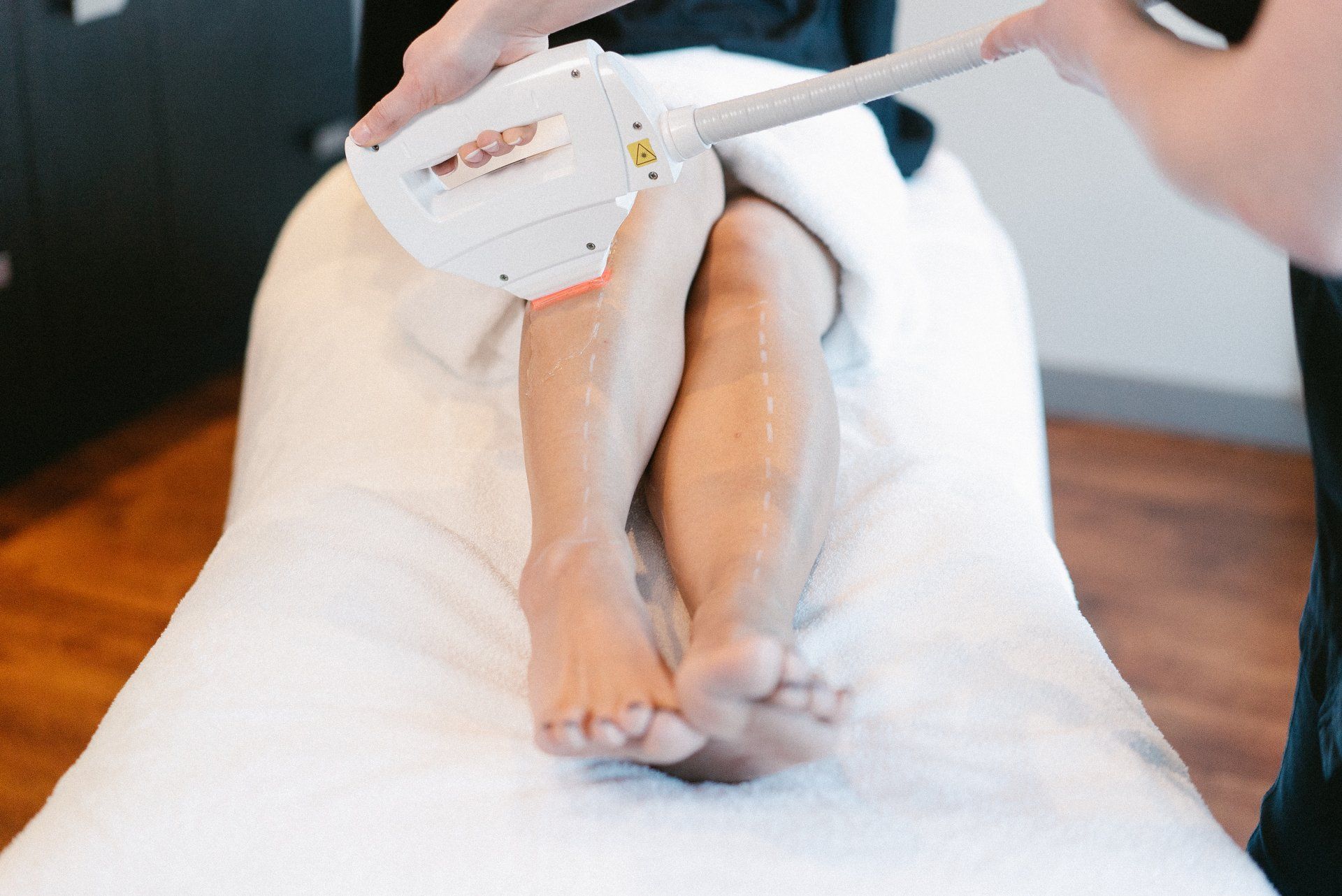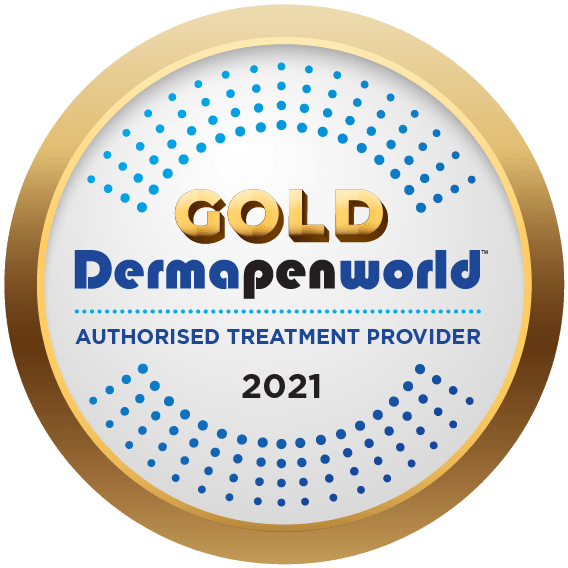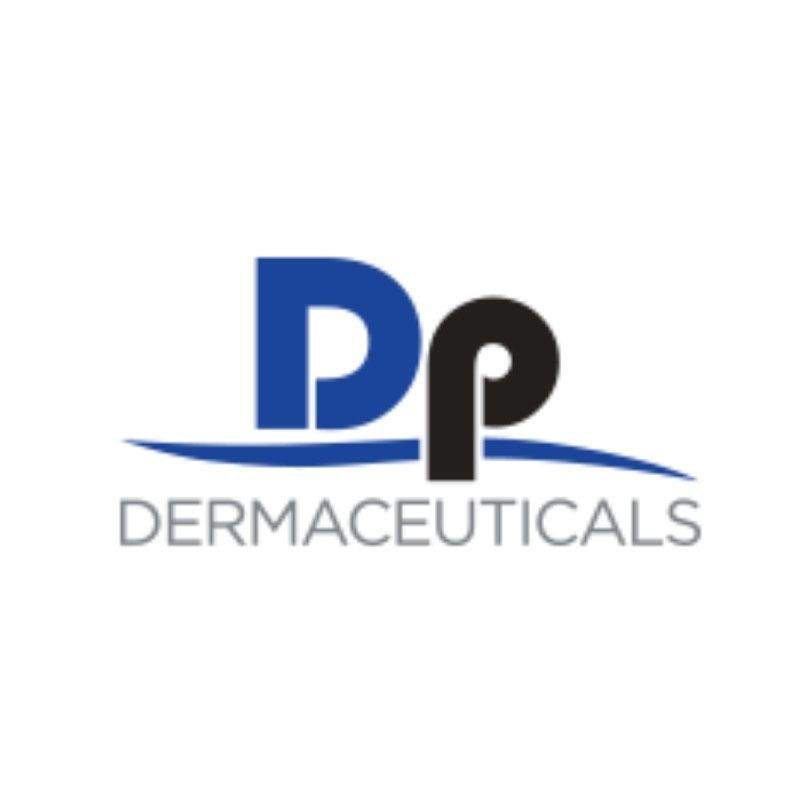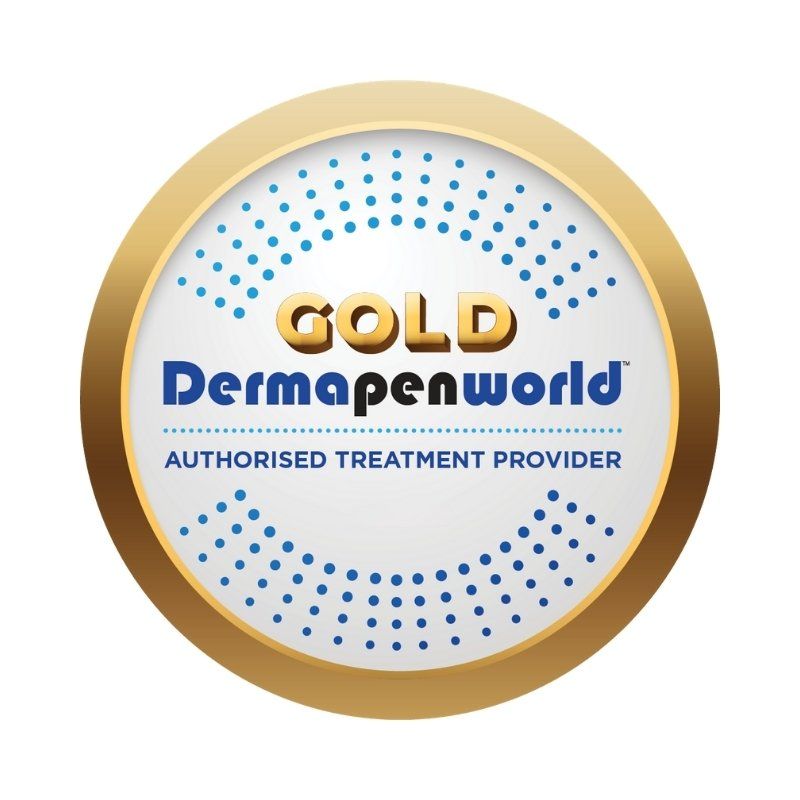Discover our top selling serum! Powered with award-winning actives and high levels of Vitamin B3 (12% Niacinamide). B3 Plus Serum supports the skin’s immune system, maintains fatty acid levels and reduces water loss.
Effective on problematic skins, uneven skin tone and skin concerned with aging to encourage youthful, radiant skin.
.
#skincare #microneedling #acne #scarring #pigment #skincare #skinhealth #skincarequeenstown #skin #queenstown #IPL #laserhairremoval #Aging #LEDTherapy #advancedskincare #beauty #skincare #innerbeauty #bestofbeauty #acne #clearskin #healthyskin #facials #nails #cnd #ocosmedics #purefiji #ocosmedics #glazed #hydration
Did you know that your diligence with your AM and PM routines and the products you use regularly at home, account for roughly 80% of your success rate for achieving your skin goals? This, alongside your in-salon bespoke treatment plan and our thorough analysis will help us succeed in achieving the results you're looking for.
.
#skincare #microneedling #acne #scarring #pigment #skincare #skinhealth #skincarequeenstown #skin #queenstown #IPL #laserhairremoval #Aging #LEDTherapy #advancedskincare #beauty #skincare #innerbeauty #bestofbeauty #acne #clearskin #healthyskin #facials #nails #cnd #ocosmedics #purefiji #ocosmedics #glazed #hydration
SUMMER GLOW SPECIAL
.
Unveil Radiance with Microneedling
.
Revitalize your skin this summer with our exclusive Microneedling Package! Enjoy a radiant complexion and a refreshing discount for a limited time.
.
Package Includes:
- 10% OFF on Dermapen Microneedling.
- FREE Dp Dermaceuticals Hyla Active 3D Sculptured Mask to take home. (Value of $33)
.
Save up to $70!
.
Benefits of Microneedling:
- Stimulates collagen production
- Improves skin texture and tone
- Reduces fine lines and wrinkles
- Enhances product absorption for lasting results
.
BOOK NOW CLICKING THE LINK IN OUR BIO!
.
#skincare #microneedling #acne #scarring #pigment #skincare #skinhealth #skincarequeenstown #skin #queenstown #IPL #laserhairremoval #Aging #LEDTherapy #advancedskincare #beauty #skincare #innerbeauty #bestofbeauty #acne #clearskin #healthyskin #facials #nails #cnd #ocosmedics #purefiji #ocosmedics #glazed #hydration
Everyone has a skin journey, we're here to help you along yours.
.
.
#skincare #microneedling #acne #scarring #pigment #skincare #skinhealth #skincarequeenstown #skin #queenstown #IPL #laserhairremoval #Aging #LEDTherapy #advancedskincare #beauty #skincare #innerbeauty #bestofbeauty #acne #clearskin #healthyskin #facials #nails #cnd #ocosmedics #purefiji #ocosmedics #glazed #hydration
Restore, refresh, enhance appearance with a potent form of HA.
.
Upgrade your Dermapen treatment with the Potent Hyaluronic Acid (35 mg/ml) to hydrate skin and reverse visible effects of ageing. Anti-inflammatories Darutoside (active ingredient of Sigesbeckia Orientalis) and Centella Asiatica Extract help with wound healing and visibly reduce irritation and redness.
.
Book now clicking the link in our bio
.
#skincare #microneedling #acne #scarring #pigment #skincare #skinhealth #skincarequeenstown #skin #queenstown #IPL #laserhairremoval #Aging #LEDTherapy #advancedskincare #beauty #skincare #innerbeauty #bestofbeauty #acne #clearskin #healthyskin #facials #nails #cnd #ocosmedics #purefiji #ocosmedics #glazed #hydration
Slow and steady wins the race!
.
Regular skin treatments at the salon and a specific at-home routine are the basic essentials when it comes to achieving your skin journey results.
.
One facial every now and then is a nice treat, but don't expect serious results from a one-off. Regularity is key.
.
#skincare #microneedling #acne #scarring #pigment #skincare #skinhealth #skincarequeenstown #skin #queenstown #IPL #laserhairremoval #Aging #LEDTherapy #advancedskincare #beauty #skincare #innerbeauty #bestofbeauty #acne #clearskin #healthyskin #facials #nails #cnd #ocosmedics #purefiji #ocosmedics #glazed #hydration
Let there be (LED) Light!
Boost collagen and elastin production at home with gentle LED light therapy.
.
This at-home LED mask is your new secret weapon against Ageing.
.
L.E.D. stands for “light-emitting diodes”, which are clinically proven to rejuvenate all skin types. Whether you have dry, sensitive skin, uneven tone, acne, oily skin, visible pores or a combination, LED light therapy can help improve the appearance of your skin.
.
PRE-ORDER YOURS!
.
DM us for more information
.
#skincare #microneedling #acne #scarring #pigment #skincare #skinhealth #skincarequeenstown #skin #queenstown #IPL #laserhairremoval #Aging #LEDTherapy #advancedskincare #beauty #skincare #innerbeauty #bestofbeauty #acne #clearskin #healthyskin #facials #nails #cnd #ocosmedics #purefiji #ocosmedics #glazed #led
We treat a wide variety of skin concerns, let us know what your goals are and we'll create a tailor made in-salon and at-home skincare plan just for you.
.
#skincare #microneedling #acne #scarring #pigment #skincare #skinhealth #skincarequeenstown #skin #queenstown #IPL #laserhairremoval #Aging #LEDTherapy #advancedskincare #beauty #skincare #innerbeauty #bestofbeauty #acne #clearskin #healthyskin #facials #nails #cnd #ocosmedics #purefiji #ocosmedics #glazed #hydration
O COSMEDICS - O-Biome Hydrating & Setting Spray
.
This beautiful setting spray acts as a prebiotic to help create and maintain a healthy environment for skin microbiome and a postbiotic focusing on natural ingredients to nourish the skin and support healthy barrier care.
.
#Dermapen #microneedling #acne #scarring #redness #texture #skincare #skinhealth #skincarequeenstown #skin #queenstown #skinneedling #IPL #laserhairremoval #Aging #LEDTherapy #advancedskincare #ocosmedics #settingspray #probeauty
SKIN JOURNEY MEMBERSHIP
.
Achieving your skin goals is a lifetime buy in, akin to keeping fit and healthy by doing regular exercise; your skin requires constant attention too.
.
This Membership plan divides your essentials into easy monthly payments, making sure you'll get the most out of your time with us as well as your time at-home.
.
Each month, your $135 membership fee is fully redeemable towards your tailored 45 minutes monthly facial, including facial peels, microdermabrasion, LED Light Therapy and our Observ Skin Imaging technology. You may also upgrade to an advanced treatment including IPL Skin Rejuvenation and Microneedling included at the 10% discounted treatment rate for members.
.
#skincare #microneedling #acne #scarring #pigment #skincare #skinhealth #skincarequeenstown #skin #queenstown #IPL #laserhairremoval #Aging #LEDTherapy #advancedskincare #beauty #skincare #innerbeauty #bestofbeauty #acne #clearskin #healthyskin #facials #nails #cnd #ocosmedics #purefiji #ocosmedics #glazed #hydration
SAVE UP TO $70!
.
Unveil Radiance with Microneedling
.
Revitalize your skin this summer with our exclusive Microneedling Package! Enjoy a radiant complexion and a refreshing discount for a limited time.
.
Package Includes:
- 10% OFF on Dermapen Microneedling.
- FREE Dp Dermaceuticals Hyla Active 3D Sculptured Mask to take home. (Value of $33)
.
Benefits of Microneedling:
- Stimulates collagen production
- Improves skin texture and tone
- Reduces fine lines and wrinkles
- Enhances product absorption for lasting results
.
BOOK NOW CLICKING THE LINK IN OUR BIO!
.
Terms & Conditions: Valid only for bookings between 1st February and 29th of February 2024. Gift Voucher purchases valid until end of February 2024 after which they will revert to the dollar amount. Discount does not apply to pre-existing bookings from 01/02/24. Bookings out of the date of this offer won't be accepted.
.
#skincare #microneedling #acne #scarring #pigment #skincare #skinhealth #skincarequeenstown #skin #queenstown #IPL #laserhairremoval #Aging #LEDTherapy #advancedskincare #beauty #skincare #innerbeauty #bestofbeauty #acne #clearskin #healthyskin #facials #nails #cnd #ocosmedics #purefiji #ocosmedics #glazed #hydration
MEET BEX
.
Bex has years of experience working in New Zealand and overseas as a beauty and skin therapist.
⠀
.
She believes in a well-rounded approach when it comes to the health of the skin and combines her knowledge of skincare with the latest and up-to-date treatments to deliver optimum results.
Bex’s field of interest lies in helping to correct problem skin as well as skin rejuvenation and improvement of skin function and integrity.
.
Following initial consultation with a client, Bex can advise and prepare a treatment plan for a wide range of skin conditions, such as pigmentation, acne management, inflammatory skin disorders, ageing skin and many others.
.
Expertise: Dermapen and Advanced Facials
.
#skincare #microneedling #acne #scarring #pigment #skincare #skinhealth #skincarequeenstown #skin #queenstown #IPL #laserhairremoval #Aging #LEDTherapy #advancedskincare #beauty #skincare #innerbeauty #bestofbeauty #acne #clearskin #healthyskin #facials #nails #cnd #ocosmedics #purefiji #ocosmedics #glazed #hydration
INTRODUCING DERMAPLANING
.
We are delighted to share some exciting news with you - The Beauty Lounge is introducing a fantastic new skincare treatment to our menu:
.
Dermaplaning!
.
Dermaplaning is a highly effective exfoliation treatment that removes dead skin cells and peach fuzz, leaving your skin smoother, brighter, and more radiant. This non-invasive procedure is perfect for achieving a flawless complexion and enhancing the effectiveness of your skincare routine.
.
Why should you do it?
- Smooth and Radiant Skin
- Enhanced Product Absorption
- Instant Glow
- Safe & Painless
.
Book now clicking the link in our bio.
.
#Dermapen #microneedling #acne #scarring #redness #texture #skincare #skinhealth #skincarequeenstown #skin #queenstown #skinneedling #IPL #laserhairremoval #Aging #LEDTherapy #advancedskincare #dermaplaning #Radiant #Peachfuzz #Beautylounge #flawless
YOUR SKIN JOURNEY STARTS HERE.
.
Trust your therapists, we're here to get you results.
.
We have the long-game in mind, and so should you. 'Short term pain, long term gain' isn't the motto of any good skincare programme, so we're embracing the 'slow and steady wins the race' approach.
⠀
Our membership is our answer to providing you with our full advanced treatment menu and products at affordable rates with the long-game sitting front and centre. No two skins are the same, and our goal is to guarantee you're receiving a tailor-made skin journey while maintaining and developing your in-salon and at-home treatment plan with regularity.
⠀
So are you ready to commit to results? We are!
.
To know more email us info@beautyloungequeenstown.co.nz
.
#skincare #microneedling #acne #scarring #pigment #skincare #skinhealth #skincarequeenstown #skin #queenstown #IPL #laserhairremoval #Aging #LEDTherapy #advancedskincare #beauty #skincare #innerbeauty #bestofbeauty #acne #clearskin #healthyskin #facials #nails #cnd #ocosmedics #purefiji #ocosmedics #glazed #hydration
SUMMER GLOW SPECIAL
.
Unveil Radiance with Microneedling
.
Revitalize your skin this summer with our exclusive Microneedling Package! Enjoy a radiant complexion and a refreshing discount for a limited time.
.
Package Includes:
- 10% OFF on Dermapen Microneedling.
- FREE Dp Dermaceuticals Hyla Active 3D Sculptured Mask to take home. (Value of $33)
.
Save up to $70!
.
Benefits of Microneedling:
- Stimulates collagen production
- Improves skin texture and tone
- Reduces fine lines and wrinkles
- Enhances product absorption for lasting results
.
BOOK NOW CLICKING THE LINK IN OUR BIO!
.
Terms & Conditions: Valid only for bookings between 1st February and 29th of February 2024. Gift Voucher purchases valid until end of February 2024 after which they will revert to the dollar amount. Discount does not apply to pre-existing bookings from 01/02/24. Bookings out of the date of this offer won't be accepted.
.
✨ GIVEAWAY ALERT! ✨ Ready to elevate your skincare game with our ABC’s for Perfect Skin by O Cosmedics?
.
Here’s your chance to win our luxurious skincare pack worth $550! including:
.
🌙 1x Retinoic Oil
💧 1x B3 Plus Serum
🌿 1x Vitamin Hemp Seed Oil
🌟 1x Zinc Capsules
🌼 1x EFA’s Capsules
.
Here’s how to enter and glow like never before:
.
1️⃣ FOLLOW US & LIKE THIS POST: Make sure you’re following our Instagram account.
2️⃣ SHARE THE LOVE: Tag a friend in the comments who deserves flawless skin too!
3️⃣ EXTRA ENTRIES: Share this post on your feed, and each additional share equals another entry! Don’t forget, sharing in your Instagram stories gets you one more entry. 🚀
.
Let the glow-up begin! ✨ Winner will be announced 23rd of February 2024. Only for NZ Residents. Good luck! 🌈
.
#PerfectSkinGiveaway #OCosmedics #SkincareMagic #GlowUp #giveaway #beautylounge #newzealand #skincare #vitaminc #vitaminb #vitamina #fyp #foryou #foryoupage #nz #skin #facial #facialmassage #perfectskin
Summer is here, and we've got your back (and legs, and arms)! Dive into the season feeling confident and beach-ready with our waxing and tanning, services Say goodbye to unwanted fuzz and hello to that summer glow! 🌴👙 Let's make this summer your best one yet!.
.
. #beauty #skincare #innerbeauty #bestofbeauty #acne #clearskin #healthyskin #facials #nails #cnd #ocosmedics #ginger&me #bestow #kikihealth #purefiji #quoimakeup #advanceskincare
🎄✨ Trading Hours Update for the Christmas Break! 🎅🕰️ Our elves need a little break too! We'll be spreading the holiday cheer with adjusted hours.
Wishing you all a joyous holiday season!
.
.
#ocosmedics #skincare #wellness #gifts #christmas #purefiji #dermapen #microdermabraison #peels #skin #love #mindfullness #presents #family #friends
Potent Clearing Serum @ocosmedics
O Cosmedics Potent Clearing Serum contains not one but four potent actives that control breakouts, acne, skin congestion or hormonal pimples.
Encapsulated Salicylic Acid and L-Lactic Acid exfoliate the skin (inside and out) and encourage cell turnover whilst powerful botanicals support the reduction of inflammation. V8 Peptide Complex® ensures skin is left super hydrated and rebalanced. Works as the perfect targeted spot cream for breakouts, congestion and even ingrown hairs.
RRP $129.00
#Dermapen #microneedling #acne #scarring #redness #texture #skincare #skinhealth #skincarequeenstown #skin #queenstown #skinneedling #IPL #laserhairremoval #Aging #LEDTherapy #advancedskincare
Did you know that using SPF is the ultimate secret to maintaining healthy, youthful skin? Here's why it's a skincare essential!
.
Elevate your sun care routine with Ocosmetics SPF Mineral Pro, available at Beauty Lounge. Experience professional-grade sun protection for a radiant and healthy complexion.
.
.
. #ocosmedicsnz #skincare #facials #corneotherapy #gentleexfoliation #correctivepeels #crueltyfree #vegan #nonasties #australianmadeandowned #probeauty #ginger&me #medicalgradeingredients
Our Beauty Lounge Gift Vouchers are the perfect present for the skincare and beauty enthusiasts in your life! .
Treat your loved ones to a gift voucher Beauty Lounge, where they can indulge in rejuvenating skincare treatments and enhance their natural beauty.
.
.
.
Link in bio!
. #Dermapen #microneedling #acne #scarring #redness #texture #skincare #skinhealth #skincarequeenstown #skin #queenstown #skinneedling #IPL #laserhairremoval #Aging #LEDTherapy #advancedskincare
So perhaps you've been considering IPL hair removal recently? Well here are the main benefits to help you decide if the treatment is right for you!
Look at our website, pop into the salon or give us a wee call if you'd like to chat through any concerns of have any questions at all or to inquire about pricing.
• IPL Hair Removal is quick and easy, with no down time! Your IPL treatments take about as long as a waxing treatment.
• IPL Hair Removal is great value for money. If you calculated all of the savings you’d make over a lifetime of waxing, shaving or other hair removal techniques, your IPL investment goes a long way!
• IPL Hair Removal permanently reduces your hair regrowth. It’s advised to keep up with a maintenance treatment about once a year to keep a great result.
• IPL Hair Removal can permanently prevent ingrown hairs. The IPL prevents hair growth at the follicle so you won’t need to worry about ingrown hairs again!
• IPL Hair Removal saves you time and hassle in the long run, no last-minute shaving before heading to the beach!⠀⠀⠀
• IPL Hair Removal (unlike other machines eg. Laser) can treat light, grey, white and blonde hairs due it’s broad spectrum technology.
.
#Dermapen #microneedling #acne #scarring #redness #texture #skincare #skinhealth #skincarequeenstown #skin #queenstown #skinneedling #IPL #laserhairremoval #Aging #LEDTherapy #advancedskincare #IPL #IPLHairremoval #laserhairremoval #IPLQueenstown
Does order matter? When it comes to your skincare routine yes! The order of your skincare can go a long way in improving your skin for a healthier complexion. Once you know you know! so read below to learn how to get the most out of your precious product!
Step 1: Cleanse! - double if you're feeling it
Step 2: Exfoliate - (only 1-2) times a week
Step 3: Serums - after your skin is clean and fresh apply your choice of serum
Step 4: Eye cream - the first step to super hydration!
Step 5: Moisturiser - the most important step in treating dehydrated skins
Step 6: Sunscreen - An essential in all skin care routines and your bff for life!
Easy as that!
If you have any questions or want to know a bit more about what skincare is best for you give us a call at The Beauty Lounge on 034422261 or get a redeemable skin consult and fill all the gaps in your skincare routine!
.
#skincare #microneedling #acne #scarring #pigment #skincare #skinhealth #skincarequeenstown #skin #queenstown #IPL #laserhairremoval #Aging #LEDTherapy #advancedskincare #beauty #skincare #innerbeauty #bestofbeauty #acne #clearskin #healthyskin #facials #nails #cnd #ocosmedics #purefiji #ocosmedics #glazed #hydration
MEET THE TEAM! ✨
Mel is from South Africa and has been traveling all around the world as a Qualified Beauty Therapist.
She has been in the industry for 9+ years, she’s an all rounder therapist and is ready to continue helping all of our lovely clients at the Beauty Lounge on their self-care journeys. She is qualified in everything from Facials, Dermapen, IPL - to manicures, waxing, brows, lash lifts and so much more!
Melissa is very passionate about the skin & beauty industry and will give her clients 110%!
“I am passionate in helping my clients achieve their skincare and beauty goals and to help them feel confident in their own skin!”
.
Expertise: Advanced Facials & IPL Hair Removal
.
.
#Dermapen #microneedling #acne #scarring #redness #texture #skincare #skinhealth #skincarequeenstown #skin #queenstown #skinneedling #IPL #laserhairremoval #Aging #LEDTherapy #advancedskincare
Elevate your skincare routine with O Cosmedics Comfort Cream. 🌿 Packed with hydrating hyaluronic acid and nourishing botanicals, it's the perfect blend for soft, radiant skin. 🌟 Say goodbye to dryness and hello to a simple, effective skincare essential. 💧 #OCosmedics #ComfortCream #SkincareRoutine.
#Dermapen #microneedling #acne #scarring #redness #texture #skincare #skinhealth #skincarequeenstown #skin #queenstown #skinneedling #IPL #laserhairremoval #Aging #LEDTherapy #advancedskincare
SAVE 25% ON IPL HAIR REMOVAL TREATMENTS THIS WINTERAvailable June 1st - September 30th 2023.
Have you ever considered IPL or laser removal for unwanted hair? IPL not only helps to permanently reduce hair from large areas of your body like the legs, back and chest etc, but if you suffer from ingrown hairs or hormone-related excess hair growth, our advanced IPL technology can change the way you feel, not just look!
Give us a wee call or book in for a consultation online > LINK IN BIO.
📞 (03) 442 2261
#IPL #IPLHairremoval #laserhairremoval #IPLQueenstown #Dermapen #microneedling #acne #scarring #redness #texture #skincare #skinhealth #skincarequeenstown #skin #queenstown #skinneedling #IPL #laserhairremoval #Aging #LEDTherapy #advancedskincare
IPL SPECIALS!!.
25% OFF IPL Photofacials - IPL Specials at the Beauty Lounge.
Available from April 1st - September 30th 2023.
Save 25% on all photofacials. Repair Summer sun damage, stimulate new collagen production, even skin tone & texture and more with our IPL facials.
Head to the link in our bio for more info or give us a wee call to book in for your consultation.
📞 (03) 442 2261
#IPL #IPLHairremoval #laserhairremoval #IPLQueenstown #IPLFacial #IPLPhotofacial #Dermapen #microneedling #acne #scarring #redness #texture #skincare #skinhealth #skincarequeenstown #skin #queenstown #skinneedling #IPL #laserhairremoval #Aging #LEDTherapy #advancedskincare
MONTHLY SKINCARE MEMBERSHIP
Stay on track with your skincare journey!
COMMITMENT - Achieving your skin goals is a lifetime buy in.
Akin to keeping fit and healthy by doing regular exercise; your skin requires constant attention too. This Membership plan divides your essentials into easy monthly payments, making sure you'll get the most out of your time with us as well as your time at-home.
PAY WEEKLY, FORTNIGHTLY OR MONTHLY.
>> LINK IN BIO TO LEARN MORE >>>
Give us a wee call on 03 442 2261 if you have any questions for us at all.
.
#beauty #skincare #innerbeauty #bestofbeauty #acne #clearskin #healthyskin #facials #nails #cnd #ocosmedics #ginger&me #bestow #kikihealth #purefiji #quoimakeup #advanceskincare #ocosmedicsnz #skincare #facials #corneotherapy #gentleexfoliation #correctivepeels #crueltyfree #vegan #nonasties #australianmadeandowned #probeauty #ginger&me #medicalgradeingredients
IPL WINTER SPECIALSHAIR REMOVAL
BUY 3, GET THE 4TH FREE!
.
- PERMANENTLY REDUCE HAIR REGROWTH
- SAVE 25%
- PRICE PROMISE
- PAYMENT PLANS AVAILABLE
.
Offer valid on IPL Hair Removal Treatments (packs of 4 only, does not apply to individual treatments). Valid from June 1st to September 30th 2023. Other T&C's may apply.
.
#Dermapen #microneedling #acne #scarring #redness #texture #skincare #skinhealth #skincarequeenstown #skin #queenstown #skinneedling #IPL #laserhairremoval #Aging #LEDTherapy #advancedskincare #IPL #IPLHairremoval #laserhairremoval #IPLQueenstown
TREAT YOURSELF THIS WINTER⠀⠀⠀⠀⠀⠀⠀⠀⠀
Winter Glow-up Specials⠀⠀⠀⠀⠀⠀⠀⠀⠀
⠀⠀⠀⠀⠀⠀⠀⠀⠀
❄️$50 DEALS❄️ - EYE OPENER | BRAZILIAN WAXING |FULL BODY SPRAY TAN.⠀⠀⠀⠀⠀⠀⠀⠀⠀
.⠀⠀⠀⠀⠀⠀⠀⠀⠀
❄️$70 DEALS❄️ - 30 MIN RELAXATION FACIAL | 30 MIN MICRODERMABRASION | 30 MIN LED FACIAL.⠀⠀⠀⠀⠀⠀⠀⠀⠀
.⠀⠀⠀⠀⠀⠀⠀⠀⠀
Book now clicking the link in our bio!⠀⠀⠀⠀⠀⠀⠀⠀⠀
.⠀⠀⠀⠀⠀⠀⠀⠀⠀
Offer Valid from June 1st to August 31st 2023. Other T&C's may apply.⠀⠀⠀⠀⠀⠀⠀⠀⠀
. #specials #winter #snow #beauty #eyes #deals #Dermapen #microneedling #acne #scarring #redness #texture #skincare #skinhealth #skincarequeenstown #skin #queenstown #skinneedling #IPL #laserhairremoval #Aging #LEDTherapy #advancedskincare
O Cosmedics Facial and Peel 🫧.
Our signature facial here at the Beauty Lounge. Every O Cosmedics Dermal facial is tailored to your exact skin concerns and needs. This Facial includes a double cleanse, exfoliation, peel alginate mask, soothing massage and application of treatment serums, hydrators and SPF.
#ocosmedicsnz #skincare #facials #corneotherapy #gentleexfoliation #correctivepeels #crueltyfree #vegan #nonasties #australianmadeandowned #probeauty #ginger&me #medicalgradeingredients
IPL is an effective treatment for almost any skin condition - the light safely penetrates the skin and targets damaged cells to destroy them and promote healthy cellular renewal.
IPL Rejuvenation is excellent for:
Skin Tone Improvement
Pigmentation Removal
Red Vein Reduction
Stimulates Collagen and Elastin Production
Minimize Pore Size
.
.
#Dermapen #microneedling #acne #scarring #redness #texture #skincare #skinhealth #skincarequeenstown #skin #queenstown #skinneedling #IPL #laserhairremoval #Aging #LEDTherapy #advancedskincare #IPL #IPLHairremoval #laserhairremoval #IPLQueenstown
Clarity, consistency and commitment.
Your at-home skincare routine attributes to more than 80% of you skin goals success :)
Give us a call to learn more about our skincare membership that gives you access to every treatment you'll need plus discount on advanced treatment upgrades and products.
📞 (03) 442 2261
Website LINK IN BIO
#Dermapen #microneedling #acne #scarring #redness #texture #skincare #skinhealth #skincarequeenstown #skin #queenstown #skinneedling #IPL #laserhairremoval #Aging #LEDTherapy #advancedskincare
IPL WINTER SPECIALS. Available JUNE - SEPTEMBER 2023
IPL HAIR REMOVAL - Buy 3, get your 4th FREE
Purchase a pack of 4 treaments this Winter to save 25% on your IPL. Permanently reduce hair regrowth and get prepped for Summer!
.
IPL SKIN REJUVENATION - 25% off all IPL Photofacials.
Save 25% on all photofacials this Winter. Repair Summer sun damage, stimulate new collagen production, even skin tone & texture and more with our IPL facials.
PRICE PROMISE
We’ll also lock you into your 25% off price for all future appointments on the areas you've purchased 4-packs for hair removal.
Click the link in our bio for more info or get in touch for our 2023 Winter Special IPL Pricelist.
📞 (03) 442 2261 | website link in bio.
Terms & Conditions Apply.
#IPL #IPLHairremoval #laserhairremoval #IPLQueenstown #Dermapen #microneedling #acne #scarring #redness #texture #skincare #skinhealth #skincarequeenstown #skin #queenstown #skinneedling #Aging #LEDTherapy #advancedskincare
Potent Clearing Serum @ocosmedics
O Cosmedics Potent Clearing Serum contains not one but four potent actives that control breakouts, acne, skin congestion or hormonal pimples.
Encapsulated Salicylic Acid and L-Lactic Acid exfoliate the skin (inside and out) and encourage cell turnover whilst powerful botanicals support the reduction of inflammation. V8 Peptide Complex® ensures skin is left super hydrated and rebalanced. Works as the perfect targeted spot cream for breakouts, congestion and even ingrown hairs.
RRP $127.00
#Dermapen #microneedling #acne #scarring #redness #texture #skincare #skinhealth #skincarequeenstown #skin #queenstown #skinneedling #IPL #laserhairremoval #Aging #LEDTherapy #advancedskincare
MONTHLY SKINCARE MEMBERSHIP
Stay on track with your skincare journey!
CONSISTENCY - Achieving your skin goals is a lifetime buy in.
Akin to keeping skin fit and healthy by doing regular exercise; your skin requires constant attention too. This Membership plan divides your essentials into easy monthly payments, making sure you'll get the most out of your time with us as well as your time at home.
PAY WEEKLY, FORTNIGHTLY OR MONTHLY
#Dermapen #microneedling #acne #scarring #redness #texture #skincare #skinhealth #skincarequeenstown #skin #queenstown #skinneedling #IPL #laserhairremoval #Aging #LEDTherapy #advancedskincare
Gommage, from the French word meaning “to erase”, is a classic exfoliation technique much loved for its ability to hydrate the skin whilst sloughing off dead skin cells to reveal smooth, glowing, and healthy skin.
To Gommage, apply your O Cosmedics 3-IN-1 peel like a mask and allow to dry (use these 5-10 minutes to enjoy some me-time, you deserve it!). Once dry, support skin with one hand (keeping it taught) and rub off gently with fingers on the other. Repeat this process once or twice a week (unless your skin is sensitive or inflamed in which case removing with water and the Skin Shammy is best).
Explore O Cosmedics and find your local stockist at the link in our bio. ❤️
#activeskincare #ocosmedics #gommage #athomepeel #facemask #selflove #Dermapen #microneedling #acne #scarring #redness #texture #skincare #skinhealth #skincarequeenstown #skin #queenstown #skinneedling #IPL #laserhairremoval #Aging #LEDTherapy #advancedskincare
O Cosmedics Skin-Inject Derma Roller supports:CIT Collagen Induction Therapy, SRT Scar Reduction Therapy, Cosmedical Product Infusion, Skin Ageing, Lines and Wrinkles, Acne and Pimples, Enlarged Pores, Pigmentation, Body Stretch Marks, Refreshed, Revived and Awakened Complexion.... couple all those beautiful benefits with our favourite serum, B3 Plus
Does order matter?
When it comes to your skincare routine yes! The order of your skincare can go a long way in improving your skin for a healthier complexion. Once you know you know! so read below to learn how to get the most out of your precious product!
Step 1: Cleanse! - double if you're feeling it
Step 2: Exfoliate - (only 1-2) times a week
Step 3: Serums - after your skin is clean and fresh apply your choice of serum
Step 4: Eye cream - the first step to super hydration!
Step 5: Moisturiser - the most important step in treating dehydrated skins
Step 6: Sunscreen - An essential in all skin care routines and your bff for life!
Easy as that!
If you have any questions or want to know a bit more about what skincare is best for you give us a call at The Beauty Lounge on 034422261 or get a redeemable skin consult and fill all the gaps in your skincare routine!
.
#skincare #microneedling #acne #scarring #pigment #skincare #skinhealth #skincarequeenstown #skin #queenstown #IPL #laserhairremoval #Aging #LEDTherapy #advancedskincare #beauty #skincare #innerbeauty #bestofbeauty #acne #clearskin #healthyskin #facials #nails #cnd #ocosmedics #purefiji #ocosmedics #glazed #hydration
IPL WINTER DEALS ARE BACK!.
HAIR REMOVAL : BUY 3, GET THE 4TH FREE!
📌PERMANENTLY REDUCE HAIR REGROWTH
📌SAVE 25%
📌PRICE PROMISE
📌PAYMENT PLANS AVAILABLE
.
SKIN REJUVENATION: 25% OFF ALL PHOTOFACIALS
📌COMBAT SUN DAMAGED SKIN
📌STIMULATE COLLAGEN
📌IMPROVE SKIN TONE
📌SAVE 25%
📌PAYMENT PLANS AVAILABLE
.
Flick us an email or call to book your consultation.
.
#IPL #IPLHairremoval #laserhairremoval #IPLQueenstown #Dermapen #microneedling #acne #scarring #redness #texture #skincare #skinhealth #skincarequeenstown #skin #queenstown #skinneedling #IPL #laserhairremoval #Aging #LEDTherapy #advancedskincare #hairremoval #winter #specials #deals
Let's talk about IPL! It's not only for your hair removal. IPL innovated technology helps improve your skin tone, remove pigmentation and red veins, stimulates collagen and elastin production and minimises pore size. Book a consultation with The Beauty Lounge and see what our IPL machine can do for you! *
*
*
#ipl #laserhair #laserhairremoval #queenstown #queestownspa #beautytreatments #spa #spaqueenstown #franktonspa
💦 Transepidermal water loss 💦
What is TEWL and why is it so important?
(TEWL) is when water evaporates out of the skin due to external factors such as climate, damaging and impairing your skins protective barrier. This causes the skin to become dry and irritated sometimes resulting in eczema or dermatitis. This is more common in dryer climates such as the South Island.
The right combination of ingredients and skincare can be crucial to preventing TEWL and locking in essential fatty acids and hydration. If your skin is looking a bit dry and needs some TLC! it might be time to find some hydrating home care.
To book a skin consultation or chat about adding some hydration to your routine contact us on...
📞 (03)4422261
📧 beautylounge@bodysanctum.co.nz
#Dermapen #microneedling #acne #scarring #redness #texture #skincare #skinhealth #skincarequeenstown #skin #queenstown #skinneedling #IPL #laserhairremoval #Aging #LEDTherapy #advancedskincare #hydration #waterloss #skinhealth #waterloss
O Cosmedics Skin Health Kits are a great way to travel or trial a four-step skin solution. Five skin solution variants ensure we have your skin covered. Travel light and maintain your daily skin regime or get the perfect introduction to the world of O Cosmedics. The first step to becoming an O addict is just a kit away!.
.
.
#ocosmedicsnz #skincare #facials #corneotherapy #gentleexfoliation #correctivepeels #crueltyfree #vegan #nonasties #australianmadeandowned #probeauty #ginger&me #medicalgradeingredients
So perhaps you've been considering IPL hair removal recently? Well here are the main benefits to help you decide if the treatment is right for you!
Look at our website, pop into the salon or give us a wee call if you'd like to chat through any concerns of have any questions at all or to inquire about pricing.
• IPL Hair Removal is quick and easy, with no down time! Your IPL treatments take about as long as a waxing treatment.
• IPL Hair Removal is great value for money. If you calculated all of the savings you’d make over a lifetime of waxing, shaving or other hair removal techniques, your IPL investment goes a long way!
• IPL Hair Removal permanently reduces your hair regrowth. It’s advised to keep up with a maintenance treatment about once a year to keep a great result.
• IPL Hair Removal can permanently prevent ingrown hairs. The IPL prevents hair growth at the follicle so you won’t need to worry about ingrown hairs again!
• IPL Hair Removal saves you time and hassle in the long run, no last-minute shaving before heading to the beach!⠀⠀⠀
• IPL Hair Removal (unlike other machines eg. Laser) can treat light, grey, white and blonde hairs due it’s broad spectrum technology.
.
#Dermapen #microneedling #acne #scarring #redness #texture #skincare #skinhealth #skincarequeenstown #skin #queenstown #skinneedling #IPL #laserhairremoval #Aging #LEDTherapy #advancedskincare #IPL #IPLHairremoval #laserhairremoval #IPLQueenstown
If you’re wanting to take a step up from your usual facial, these peels are your secret weapon to achieving your skin goals. Depending on your skin we'll pick the best one for you. Wether it will renew and boost hydration or help support sun-damaged, ageing and uneven skin tones..
.
. #Dermapen #microneedling #acne #scarring #redness #texture #skincare #skinhealth #skincarequeenstown #skin #queenstown #skinneedling #IPL #laserhairremoval #Aging #LEDTherapy #advancedskincare
Hemp Protein Powder is an easily digestible natural,plant-based source of complete protein. It contains high amounts of fibre, 8 essential amino acids and all essential fatty acids. Hemp Protein improves brain function and higher intelligence due to the high levels of Omega 3.
#Kikihealth #guthealth #wellness #supplements #organic #healthy #innerbeauty #probiotics #prebiotics #naturalbeauty #superfoods
Summer may almost be over but you don't have to lose your tan. Drop in for a Moroccan Spray Tan to keep that summer glow*
*
* #moroccantan #tanning #tanlines #tannedskin #glow #tanned #naturalskin #selftan #tanspo #style #glowing #fauxglow #naturalglow #skin #skinhealth #skincare #moroccantannz #beauty #tanlife #spraytanning #bronzed #glowgoals #tanningsolutions #tangoals #fashion #sunkissed #instabeauty #glowgetter #glam
Introducing the new O Cosmedics REJUV Gua Sha Facial Device! O-REJUV is the ultimate home-care system designed to lift, firm, tone, de-puff and detoxify the skin. This Gua Sha combines thermal massage, low-level EMS (Electrical Muscle Stimulation) technology and two LED wavelength-therapies to stimulate the skin’s micro-circulation and oxygenate for healthier blood flow and nutrient delivery; resulting in toned, glowing, healthy skin. Perfect to ease muscle tension too.*
*
*
#ocosmedicsnz #skincare #facials #corneotherapy #gentleexfoliation #correctivepeels #crueltyfree #vegan #nonasties #australianmadeandowned #probeauty #ginger&me #medicalgradeingredients
A high performing natural foundation where siliconeshave been replaced by natural texturisers, designed
to hydrate and protect the skin with a velvety finish.
The formulation is enhanced by desert date oil,
known for its hydrating, nourishing and purifying
benefits. 20% of the formula is made with an organic
fruit extract, to help fight environmental stress.
Alkaline Infusion is a beauty and health supplementproviding beneficial effects for the health, function and
appearance of the skin, hair and nails.
BENEFITS
• Balances and restores the bodies pH balance
• Fights free radicals
• Reduces tiredness and fatigue
• Supports the immune system
• Adds elasticity to the skin by building collagen
• Promotes hair and nail growth
• Reveals a more luminous and healthy body
• Supports heart health
• Aids digestion
• Supports muscle function
• Energy enhancer
*
*
* #Kikihealth #guthealth #wellness #supplements #organic #healthy #innerbeauty #probiotics #prebiotics #naturalbeauty #superfoods
Invest in yourself and your skin care! It can be intimidating to know where to even start with proper skin care. The internet is full of contradicting advice. Why not leave it to our trained professionals to have a proper look at your skin and be able to recommend what YOUR skin needs, from what cleanser, moisturiser or serums!
HAPPY INTERNATIONAL WOMEN'S DAY!!!!!!
Heres to all the strong women! May we know them. May we be them. May we raise them!
*
Today is a global day to celebrate the social, economic, cultural, and political achievements of women!!!
#internationalwomensday #celebratewomen #march8th #march8 #strongwomen #womenownedbusiness #womensupportingwomen
@ocosmedics_nz Pomegranate Peel 🍬
Pretty, pink and full of goodness!
Whether you're just starting out with peels or need a pick me up for tired, congested and dry skin this peel is perfect for you.
This peel has 20% pomegranate enzyme a natural fruit acid that not only smells amazing but offers anti-bacterial, anti-oxidant and anti-inflammatory benefits as well as getting rid of redundant cells to help your skin look its best!
Get in touch to book yourself in for a pomegranate peel today!
📞 (03)4422261
📧 beautylounge@bodysanctum.co.nz
#ocosmedicsnz #skincare #facials #corneotherapy #gentleexfoliation #correctivepeels #crueltyfree #vegan #nonasties #australianmadeandowned #probeauty #ginger&me #medicalgradeingredients
Struggling to find your loved one a Valentines Day present?! Look no further!! Grab a voucher to surprise your partner with a perfect treat for them to come in and relax!
*
*
*
#love #voucher #giftcard #giftidea #gift #valentinesday #spaday #queenstown #queenstownspa #holday #treatyourself #thingstodoinqueenstown
Add IPL Rejuvenation to your skin journey membership!
With our Skin Journey Membership, you'll receive 15% off our most advanced skincare treatments if you choose to upgrade your monthly facial. At just $99 a month, you'll receive so many benefits!
What is IPL for rejuvenation?
IPL is an effective treatment for almost any skin condition - the light safely penetrates the skin and targets damaged cells to destroy them and promote healthy cellular renewal.
IPL Rejuvenation is excellent for:
Skin Tone Improvement
Pigmentation Removal
Red Vein Reduction
Stimulates Collagen and Elastin Production
Minimises Pore Size
Head to the link in our bio to learn more or give us a wee call to chat and see if our membership is the right thing for you.
03 442 2261 or click the link in our bio.
#Dermapen #microneedling #acne #scarring #redness #texture #skincare #skinhealth #skincarequeenstown #skin #queenstown #skinneedling #IPL #laserhairremoval #Aging #LEDTherapy #advancedskincare
So perhaps you've been considering IPL hair removal recently? Well here are the main benefits to help you decide if the treatment is right for you!
Look at our website, pop into the salon or give us a wee call if you'd like to chat through any concerns of have any questions at all or to inquire about pricing.
• IPL Hair Removal is quick and easy, with no down time! Your IPL treatments take about as long as a waxing treatment.
• IPL Hair Removal is great value for money. If you calculated all of the savings you’d make over a lifetime of waxing, shaving or other hair removal techniques, your IPL investment goes a long way!
• IPL Hair Removal permanently reduces your hair regrowth. It’s advised to keep up with a maintenance treatment about once a year to keep a great result.
• IPL Hair Removal can permanently prevent ingrown hairs. The IPL prevents hair growth at the follicle so you won’t need to worry about ingrown hairs again!
• IPL Hair Removal saves you time and hassle in the long run, no last-minute shaving before heading to the beach!⠀⠀⠀
• IPL Hair Removal (unlike other machines eg. Laser) can treat light, grey, white and blonde hairs due it’s broad spectrum technology.
.
#Dermapen #microneedling #acne #scarring #redness #texture #skincare #skinhealth #skincarequeenstown #skin #queenstown #skinneedling #IPL #laserhairremoval #Aging #LEDTherapy #advancedskincare #IPL #IPLHairremoval #laserhairremoval #IPLQueenstown
INTRODUCING OUR NEW SKINCARE MONTHLY MEMBERSHIP
$99 per MONTH - fully redeemable
includes...
TAILORED MONTHLY FACIAL
15% OFF SKIN TREATMENTS
10% OFF PRODUCTS
10% OFF GIFT VOUCHERS
NO CONTRACTS
Payment plans are available for weekly, fortnightly or monthly payments. More information available on our website - LINK IN BIO.
We'd love to introduce you to our brand new Skin Journey Memberships, launching today!
Why have we launched a new programme?
We have the long-game in mind, and so should you. 'Short term pain, long term gain' isn't the motto of any good skincare programme, so we're embracing the 'slow and steady wins the race' approach.
Our new membership is our answer to providing you with our full treatment menu and products at affordable rates with the long-game sitting front and centre. No two skins are the same, and our goal is to guarantee you're receiving a tailor-made skin journey while maintaining and developing your in-salon and at-home treatment plan with regularity.
Achieving your skin goals is a lifetime buy in, akin to keeping fit and healthy by doing regular exercise; your skin requires constant attention too.
So are you ready to commit to results? We are!
#Dermapen #microneedling #acne #sacrring #redness #texture #skincare #skinhealth #skincarequeenstown #skin #queenstown
MONTHLY SKINCARE MEMBERSHIP
Stay on track with your skincare journey!
COMMITMENT - Achieving your skin goals is a lifetime buy in.
Akin to keeping fit and healthy by doing regular exercise; your skin requires constant attention too. This Membership plan divides your essentials into easy monthly payments, making sure you'll get the most out of your time with us as well as your time at-home.
PAY WEEKLY, FORTNIGHTLY OR MONTHLY.
>> LINK IN BIO TO LEARN MORE >>>
Give us a wee call on 03 442 2261 if you have any questions for us at all.
#Dermapen #microneedling #acne #scarring #redness #texture #skincare #skinhealth #skincarequeenstown #skin #queenstown #skinneedling #IPL #laserhairremoval #Aging #LEDTherapy #advancedskincare #ocosmedicsnz #skincare #facials #corneotherapy #gentleexfoliation #correctivepeels #crueltyfree #vegan #nonasties #australianmadeandowned #probeauty #ginger&me #medicalgradeingredients
Gommage, from the French word meaning “to erase”, is a classic exfoliation technique much loved for its ability to hydrate the skin whilst sloughing off dead skin cells to reveal smooth, glowing, and healthy skin.
To Gommage, apply your O Cosmedics 3-IN-1 peel like a mask and allow to dry (use these 5-10 minutes to enjoy some me-time, you deserve it!). Once dry, support skin with one hand (keeping it taught) and rub off gently with fingers on the other. Repeat this process once or twice a week (unless your skin is sensitive or inflamed in which case removing with water and the Skin Shammy is best).
Explore O Cosmedics and find your local stockist at the link in our bio. ❤️
#activeskincare #ocosmedics #gommage #athomepeel #facemask #selflove
MONTHLY SKINCARE MEMBERSHIP
Stay on track with your skincare journey!
CONSISTENCY - Achieving your skin goals is a lifetime buy in.
Akin to keeping skin fit and healthy by doing regular exercise; your skin requires constant attention too. This Membership plan divides your essentials into easy monthly payments, making sure you'll get the most out of your time with us as well as your time at home.
PAY WEEKLY, FORTNIGHTLY OR MONTHLY
#Dermapen #microneedling #acne #scarring #redness #texture #skincare #skinhealth #skincarequeenstown #skin #queenstown #skinneedling #IPL #laserhairremoval #Aging #LEDTherapy #advancedskincare
Remember your hands!
With regular hand sanitising, now more than ever, we really need to treat hands as ‘the new face’. Hands are one of the first places to reveal signs of aging, so it makes sense to always have a beautiful hand cream with you!
With gorgeous hands to show off, nothing beats the feeling of a beautiful, shiny gel manicure and pedicure at the spa! Not to mention it’s an incredibly relaxing treatment and keeps your nails groomed, tidy and healthy. Nice!
#beauty #skincare #innerbeauty #bestofbeauty #acne #clearskin #healthyskin #facials #nails #cnd #ocosmedics #ginger&me #bestow #kikihealth #purefiji #quoimakeup #advanceskincare
CLARITY . CONSISTENCY . COMMITMENT
One facial a year might be a nice wee treat, but it's really not going to make a dent in your progress towards well maintained, healthy skin. You won't get 'that glow' forever from one microdermabrasion facial, even though you will look fabulous following an advanced peel for a while! #sorrynotsorry
It's all about commitment. The three rules of our Skin Journey Membership, now available on payment plans for just $99/month.
Ask in salon or head to our website for more information. LINK IN BIO.
#healthyskin #skincarecomittment #Dermapen #microneedling #acne #scarring #redness #texture #skincare #skinhealth #skincarequeenstown #skin #queenstown #skinneedling #IPL #laserhairremoval #Aging #LEDTherapy #advancedskincare
Potent Clearing Serum
@ocosmedics
O Cosmedics Potent Clearing Serum contains not one but four potent actives that control breakouts, acne, skin congestion or hormonal pimples.
Encapsulated Salicylic Acid and L-Lactic Acid exfoliate the skin (inside and out) and encourage cell turnover whilst powerful botanicals support the reduction of inflammation. V8 Peptide Complex® ensures skin is left super hydrated and rebalanced. Works as the perfect targeted spot cream for breakouts, congestion and even ingrown hairs.
RRP $127.00
#Dermapen #microneedling #acne #scarring #redness #texture #skincare #skinhealth #skincarequeenstown #skin #queenstown #skinneedling #IPL #laserhairremoval #Aging #LEDTherapy #advancedskincare
Summer is here! ☀️ We have some tips on how to keep your skin looking its best this sunny season...
1. Wear SPF - Skin Therapists will always say: if you do nothing in your skincare routine make sure you never neglect the sunscreen step.
2. Invest in a good Vitamin C Serum -Vitamin C is an incredible year-round antioxidant for brightening, correcting and protecting, along with improving the appearance of fine lines and helping with collagen production.
@ocosmedics Vitamin C Hemp seed oil $139
3. Don't forget to exfoliate! - Tis the season to slough dry, redundant skin cells away! The best way to fast-track radiant skin is through an advanced in-clinic facial. Put the more powerful ones on hold until after your holiday, as you may be in for a bit of sun exposure.
#Dermapen #microneedling #acne #scarring #redness #texture #skincare #skinhealth #skincarequeenstown #skin #queenstown #skinneedling #IPL #laserhairremoval #Aging #LEDTherapy #advancedskincare
At-home LED Light Therapy: Does It Work?
.
Spoiler alert: not only does LED Light Therapy work, but when used properly, you can get clinical-grade results at a fraction of the price.
.
Quality at-home LED light therapy can result in smoother skin, reduced wrinkles, more moisture, a more even skin tone and less pigmentation. Overall, it helps your skin look younger, firmer, and (with the right products) can also help you reduce blemishes and acne.
.
But what’s the science behind this miraculous product?
.
Red and Near-Infrared (NIR) light have been proven to be absorbed by the cells in your skin. This leads to a wide range of positive benefits, including improved:
Cell proliferation
Collagen and elastin production
Blood flow & tissue oxygenation
Cells the act, look and behave younger
.
What are you waiting for??
.
PM TO PRE ORDER YOURS OR SEND US AN EMAIL TO info@beautyloungequeenstown.co.nz
.
Repost from @dermapen_nz
#beauty #skincare #innerbeauty #bestofbeauty #acne #clearskin #healthyskin #facials #nails #cnd #ocosmedics #ginger&me #bestow #kikihealth #purefiji #quoimakeup #advanceskincare #LED #skin
HAPPY NEW YEAR 🥂
2023 is upon us and if your New Years resolution is great skin and taking time for yourself we have you covered. We will reopen on the 4th of January and cant wait to see you in the new year.
#Dermapen #microneedling #acne #scarring #redness #texture #skincare #skinhealth #skincarequeenstown #skin #queenstown #skinneedling #IPL #laserhairremoval #Aging #LEDTherapy #advancedskincare
O Cosmedics Facial and Peel 🫧
Our signature facial here at the Beauty Lounge. Every O Cosmedics Dermal facial is tailored to your exact skin concerns and needs. This Facial includes a double cleanse, exfoliation, peel alginate mask, soothing massage and application of treatment serums, hydrators and SPF.
#ocosmedicsnz #skincare #facials #corneotherapy #gentleexfoliation #correctivepeels #crueltyfree #vegan #nonasties #australianmadeandowned #probeauty #ginger&me #medicalgradeingredients
Merry Christmas! ⭐️⠀⠀⠀⠀⠀⠀⠀⠀⠀
⠀⠀⠀⠀⠀⠀⠀⠀⠀
We hope you have an amazing break over the Christmas a New year period and we will see all your lovely faces next year! ⠀⠀⠀⠀⠀⠀⠀⠀⠀
⠀⠀⠀⠀⠀⠀⠀⠀⠀
Love Clare, Lauren and Chelsea xx ⠀⠀⠀⠀⠀⠀⠀⠀⠀
⠀⠀⠀⠀⠀⠀⠀⠀⠀
#ocosmedics #skincare #wellness #gifts #christmas #purefiji #dermapen #microdermabraison #peels #skin #love #mindfullness #presents #family #friends
Day 12 🌿
@kikihealth_nz
The gift of inner health, Kiki Health has an amazing range of supplements to assist in creating amazing skin from the inside out there are plenty of options for everyone ranging from Zinc to Açai powder. Perfect for those focusing on gut health or a last minute secret Santa gift.
#Kikihealth #guthealth #wellness #supplements #organic #healthy #innerbeauty #probiotics #prebiotics #naturalbeauty #superfoods
DAY 9
@Ocosmedics
Most importantly come in get products bespoke to your friends and family today or treat yourself to that product you've been wanting to buy! If your new years resolution is better skin you cant go past these amazing products by ocosmedics. We have you covered with products to suit everyone! Come in to have a chat about what will work best for you.
#ocosmedicsnz #skincare #facials #corneotherapy #gentleexfoliation #correctivepeels #crueltyfree #vegan #nonasties #australianmadeandowned #probeauty #ginger&me #medicalgradeingredients
Day 8 🕯
@nevecandles
The gift for anyone on your list this year. Neve has a range of fragrances to please everyone. From Pomegranate and Juicy Mango to Wild pine and Juniper you can go wrong with a beautiful locally made candle this year for Christmas!
#luxurycandles #candlelove #homeperfume #lightmyfire #instacandle #luxurypackaging #home #candle #candles #handpouredwithlove #smallbatchcandles #beautiful #style #veganfriendly #vegancandles #crueltyfree#nevecandles #love #soywax #naturalsoycandle #woodenwick #woodwickcandle
DAY 7 ❤️
@ocosmedics_nz Pigment Punch!
Pigmentation, age spots and uneven skin tone meet their match with this Pigment Punch Duo featuring best-sellers B3 Plus, Concentrated Brightening Serum and a buffet of awardwinning active ingredients to fast-track results. An uneven skin’s bright light for a brighter, more even complexion!
RP $192
#ocosmedicsnz #skincare #facials #corneotherapy #gentleexfoliation #correctivepeels #crueltyfree #vegan #nonasties #australianmadeandowned #probeauty #ginger&me #medicalgradeingredients
DAY 6 🌴@purefiji - Multi-Masking Kits
The best gift for those who love self care and a good at hoke mask! these cute kits contain 2 different Pure Fiji masks with everything you need for an at home spa session.
These overnight renewal kits contain
✨ Oil to Foam Cleanser
✨ Papaya Masque
✨ Coconut & Dilo Masque
✨ Applicator Brush
✨ Headband
RP $65
#purefiji #fiji #beachvibes #pamperyourself #bodybuter #exoticoil #showergel #sugarsrub #bodylotion #scents #fruity #ocosmedics #skincare #wellness #gifts #christmas #purefiji #dermapen #microdermabraison #peels #skin #love #mindfullness #presents #family #friends
DAY 5 ✨
@ocosmedics O-Rejuv Device
Gift the gift of glowing skin this Christmas! This GuaSha/LED combo helps to promote lymphatic drainage and tones skin with low Level EMS (electrical muscle stimulation). Suitable for anyone this is a fun new addition to anyones skincare routine!
#Dermapen #microneedling #acne #scarring #redness #texture #skincare #skinhealth #skincarequeenstown #skin #queenstown #skinneedling #IPL #laserhairremoval #Aging #LEDTherapy #advancedskincare #ocosmedics #skincare #wellness #gifts #christmas #purefiji #dermapen #microdermabraison #peels #skin #love #mindfullness #presents
💗 Exfoliating Cleanser 💗
O Cosmedics Exfoliating Cleanser is a cleanser and face scrub in one. With four physical exfoliating beads (Cranberry Seeds, Jojoba Beads, Diatomaceous Earth and Hydrated Silicone Crystals) this scrub offers the skin an invigorating, deep cleansing experience for the face. Plus it smells like heaven!!
#ocosmedicsnz #skincare #facials #corneotherapy #gentleexfoliation #correctivepeels #crueltyfree #vegan #nonasties #australianmadeandowned #probeauty #ginger&me #medicalgradeingredients
Mineral Pro ☀️
As the sun creeps out from the winter shadows it is important to double down on your SPF! @ocosmedics_nz mineral pro is a daily moisturiser and mineral zinc sunscreen all in one. Not only does it smell delicious but it will protect you daily from broad spectrum UV to make sure you are well protected.
📞 (03)4422261
📧 info@beautyloungequeenstown.co.nz
#ocosmedicsnz #skincare #facials #corneotherapy #gentleexfoliation #correctivepeels #crueltyfree #vegan #nonasties #australianmadeandowned #probeauty #ginger&me #medicalgradeingredients
UBER PEEL PRO 💦
The perfect add on to your next Dermapen treatment ask us about this add on next time your in! Benefits include...
💙 Smoothes texture
💙 Reduces file lines and wrinkles
💙 Evens skin tone
💙 Lightens pigmentation
This non negotiable to skin needling is sure to boost your skin and take it to the next level when doing Dermapen.
Book with us today!
📞 (03)4422261
📧 info@beautyloungequeenstown.co.nz
@dermapen_nz #skin #needling #dermapen #collageninduction #finelines #wrinkles #pigmentation #advanced skin #facial
IMPORTANCE OF EFA'S
Essential fatty acids, what are they? and how do they effect the skin?
EFA's are what help the body create healthy hormones that can regulate your immune and nervous system as well as maintain healthy hair skin and nails. @ocosmedics_nz EFA's complex has a combination of Omega 3,6 and 9 as well as Linolenic acids to help maintain healthy skin and hair. Essential fatty acids are a great way to look after the health of your skin from within so contact us about giving them a try!
📞 (03)4422261
📧 info@beautyloungequeenstown.co.nz
#ocosmedicsnz #skincare #facials #essentialfattyacids #EFA #exfoliation #peels #crueltyfree #vegan #nonasties #australianmadeandowned #probeauty #beautifulskin #medicalgradeingredients
MONTHLY SKINCARE MEMBERSHIP
Stay on track with your skincare journey!
COMMITMENT - Achieving your skin goals is a lifetime buy in.
Akin to keeping fit and healthy by doing regular exercise; your skin requires constant attention too. This Membership plan divides your essentials into easy monthly payments, making sure you'll get the most out of your time with us as well as your time at-home.
PAY WEEKLY, FORTNIGHTLY OR MONTHLY.
>> LINK IN BIO TO LEARN MORE >>>
Give us a wee call on 03 442 2261 if you have any questions for us at all.
#Dermapen #microneedling #acne #scarring #redness #texture #skincare #skinhealth #skincarequeenstown #skin #queenstown #skinneedling #IPL #laserhairremoval #Aging #LEDTherapy #advancedskincare #ocosmedicsnz #skincare #facials #corneotherapy #gentleexfoliation #correctivepeels #crueltyfree #vegan #nonasties #australianmadeandowned #probeauty #ginger&me #medicalgradeingredients
Pomegranate and Juicy Mango 🌴
Escape to the tropics with this fruity scented candle! A fan favourite and ours here at the Beauty Lounge this is the perfect gift for anyone or a treat just for you! Come in store and smell it for yourself.
@nevecandles
#luxurycandles #candlelove #homeperfume #lightmyfire #instacandle #luxurypackaging #home #candle #candles #handpouredwithlove #smallbatchcandles #beautiful #style #veganfriendly #vegancandles #crueltyfree#nevecandles #love #soywax #naturalsoycandle #woodenwick #woodwickcandle
Hello Spring 🌼
As we roll into a new season it is important to keep your skin super healthy and hydrated! Sometimes the body can be neglected as we focus on the face. Yes your face is important but don't forget about the rest of beautiful you! so stay hydrated with a nice body butter and protect with SPF (mineral based of course).
For product recommendations or advice on skincare contact us today!
📞 (03)4422261
📧 info@beautyloungequeenstown.co.nz
#beauty #skincare #innerbeauty #bestofbeauty #acne #clearskin #healthyskin #facials #nails #cnd #ocosmedics #ginger&me #bestow #kikihealth #purefiji #quoimakeup #advanceskincare
O-Rejuv Benefits!
Good news! these little beauties have just been restocked and are in salon now 😆 Not only are these Rejuv devices a super cool addition to your bathroom cabinet but they also work wonders for the skin!
Benefits include...
⚡️ Increase in collagen production
⚡️ Detoxifying
⚡️ Clears and Purifies the skin
⚡️ Restores texture and tone
⚡️ Tones, Lifts and Plumps!
@ocosmedics_nz
What more could you need, if you want and more information give us a call or email today
📞 (03)4422261
📧 info@beautyloungequeenstown.co.nz
#ocosmedicsnz #skincare #facials #corneotherapy #gentleexfoliation #correctivepeels #crueltyfree #vegan #nonasties #australianmadeandowned #probeauty #ginger&me #medicalgradeingredients
🫧 SPRING CLEAN COMBO 🫧
Our Microdermabrasion and LED combo is a match made in skincare heaven! We start by deeply exfoliating the skin with a microdermabrasion treatment then follow with a bespoke LED session to suit your skins needs. Great for skin needing a spring clean and a bit of TLC 🫶🏼
ENQUIRE TODAY:
📞 (03)4422261
📧 info@beautyloungequeenstown.co.nz
#LED #microdermabrasion #Dermapen #microneedling #acne #scarring #redness #texture #skincare #skinhealth #skincarequeenstown #skin #queenstown #skinneedling #IPL #laserhairremoval #Aging #LEDTherapy #advancedskincare
Catalyst Retinol Peel ⭐️
This @ocosmedics_nz peel is perfect for skin types looking for general skin health, repair and correction! Packed with retinol, niacinamide and natural fruit acids these ingredients will help fight ageing and improve the skins cellular renewal process.
Book in for an Ocosmedics Dermal facial today and talk to your therapist about the catalyst retinol peel! your skin will love you for it 💛
📞 (03)4422261
📧 beautylounge@bodysanctum.co.nz
#ocosmedicsnz #skincare #facials #corneotherapy #gentleexfoliation #correctivepeels #crueltyfree #vegan #nonasties #australianmadeandowned #probeauty #ginger&me #medicalgradeingredients #retinol
#selfcare
Observ Skin Imaging ®️
At the Beauty Lounge we are here to meet your goals and work alongside you to create a healthier skin. With a thorough look at your skins history we can put you on the right programme to start your journey to better skin!
✨ And the cost is 100% redeemable for product in salon!
@observ_skin_analysis
Contact us to book today
📞 (03)4422261
📧 beautylounge@bodysanctum.co.nz
#observ #Dermapen #microneedling #acne #scarring #redness #texture #skincare #skinhealth #skincarequeenstown #skin #queenstown #skinneedling #IPL #laserhairremoval #Aging #LEDTherapy #advancedskincare
Hand Health 🤲🏼
Often our hands can be forgotten about, we spend so much time focusing on the face we tend to neglect our most hardworking body part. Most of the time as we age we notice sun spots appearing and our hands can get dry and tired. So here are some tips to help keep you hands healthy and happy!
🤚🏼 Moisturise often! especially after washing or sanitising
🤚🏼 Apply SPF! Your hands and face should be getting sunscreen applied daily
🤚🏼 Manicures! tidy the cuticles to keep them free from hangnails and tearing
🤚🏼 Use a cuticle oil every night this helps keep the cuticles soft and nail plate strong
#beauty #skincare #innerbeauty #bestofbeauty #acne #clearskin #healthyskin #facials #nails #cnd #ocosmedics #ginger&me #bestow #kikihealth #purefiji #quoimakeup #advanceskincare
Not seeing results can be disheartening...
It takes up to 40 days for your skin to regenerate and even longer to adjust and change to different product, treatment and environments! so don't lose sight of your skin goals and know hard work always pays off in the end.
Monthly facials and everyday home care can significantly speed up the process of skin regeneration so contact us about our skin memberships today!
📞 (03)4422261
📧 beautylounge@bodysanctum.co.nz
#Dermapen #microneedling #acne #scarring #redness #texture #skincare #skinhealth #skincarequeenstown #skin #queenstown #skinneedling #IPL #laserhairremoval #Aging #LEDTherapy #advancedskincare
